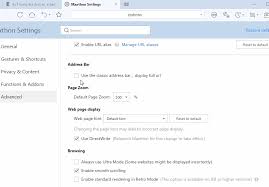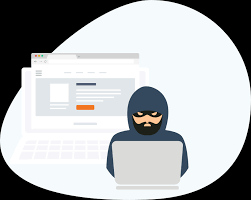Protecting personal belongings has always been a priority, whether it’s securing your passport in a locked drawer or safeguarding your prized baseball card collection. Yet, when it comes to digital data—ranging from sensitive financial records to cherished family photos—the challenge becomes less straightforward.
Cooper Quintin, a staff technologist at the Electronic Frontier Foundation, highlights a growing concern: as more of our data is accessed through web browsers, the risks multiply significantly. A compromised browser could leave this delicate information vulnerable to theft or misuse.
To enhance the security of your desktop browser and shield your private data from threats, experts recommend several practical steps. Start by routinely updating your browser and its extensions to protect against known vulnerabilities.

Installing reputable security plugins can add an extra layer of defence, blocking malicious sites and unwanted ads. Additionally, utilising strong, unique passwords for different accounts will help fortify your online presence.
By taking these proactive measures, you can ensure that while your physical possessions are safely locked away, your digital life remains equally protected from potential dangers lurking online.
Staying up to date with your web browser is crucial in today’s digital landscape. Quintin emphasises that having the latest version can significantly enhance your online security regardless of the browser you prefer.
Bugs and vulnerabilities frequently emerge as developers discover flaws or weaknesses in their software. These unpatched issues become prime targets for cyber attackers, who are always on the lookout for easy entry points into users’ systems. An outdated browser can leave you exposed and at risk of various threats.
To keep your browser current, start by closing it entirely and then reopening it. This simple action will often prompt notifications regarding any available updates. If an update is available, take a moment to install it; this small step can make a world of difference in protecting your personal information.
Regularly checking for updates ensures that you’re equipped with the latest features and security enhancements. Don’t underestimate the importance of these updates—they’re essential in defending against ever-evolving cyber threats.
Plug-ins are software components that enhance the functionality of your browser, allowing it to perform specific tasks such as playing videos or displaying interactive content. However, they can also pose significant security risks. Because plug-ins consist of substantial code, attackers often target them, using vulnerabilities to deliver malware or even gain remote control over your device.

Some of the most widely used plug-ins include Java from Oracle, Silverlight from Microsoft, QuickTime from Apple, and Flash Player from Adobe Systems. Among these, Flash Player has gained notoriety for its severe and frequently exploited vulnerabilities.
To protect yourself from potential threats associated with plug-ins, consider modifying your browser settings. You can configure your browser to prompt you for permission before executing any plug-in. This feature allows you greater control over what content gets run on your system. Additionally, some browsers offer options to block unnecessary or potentially harmful plug-in content altogether.
If you’re particularly concerned about specific plug-ins like Flash Player, you might choose to disable them entirely. According to Richard Barnes, a security lead at Mozilla Firefox, reducing the number of active plug-ins in your browser decreases the chances of being compromised by malicious code. By taking these precautions, you create a safer browsing environment for yourself.
Website publishers frequently track the locations of their visitors to gain insights into audience demographics and preferences. This information helps them serve personalised, location-based advertisements and offer services like maps and directions tailored to a user’s geographical area. However, this seemingly benign practice can pose significant privacy risks.
A remote attacker who combines your location data with your browsing habits could potentially pinpoint not only who you are but also where you reside. Such detailed profiling can lead to more targeted attacks or unwanted intrusions into your personal life.

Quintin suggests taking proactive steps to safeguard your privacy by adjusting your browser settings. By requiring explicit permission every time a website requests access to your location, you can significantly reduce the risk of unwanted tracking. This simple change enhances your privacy considerably.
However, Quintin cautions that increased security has a downside: some websites may cease functioning properly if they cannot access your location data. Balancing convenience with privacy becomes essential in an age when everyone is navigating online spaces filled with potential vulnerabilities. Making informed choices about what information you share is crucial for protecting yourself in today’s interconnected world.
In today’s digital age, device security is more crucial than ever. Many users overlook their computer’s microphone and camera, thinking they only need to consider them while using applications like Skype or Zoom. However, if your browser settings allow websites automatic access to these features, you could be at risk.

Without your knowledge, a malicious website could potentially record video or audio from your device. This is not just an invasion of privacy; it’s a severe security threat. Even sites you trust can fall victim to attackers who find ways to execute harmful code quietly.
To safeguard yourself, it’s essential to adjust your browser settings. Set them to require explicit permission every time a site requests access to your microphone or camera. By taking this simple step, you’ll significantly enhance your privacy and protect yourself from potential intrusions. Always stay vigilant about what permissions you grant online—your safety depends on it.
Before you submit your password on a website, take a moment to check the URL bar. Look for HTTPS at the beginning of the web address and observe if there’s a lock icon displayed. This seemingly small detail indicates that your connection to the site is encrypted.
When HTTPS is present, any information you enter—like passwords—is shielded from eavesdroppers. This layer of security is particularly crucial when dealing with sensitive sites such as online banking platforms.

In an era of cyber threats, protecting your accounts goes beyond checking for HTTPS. It’s wise to enable two-factor authentication wherever possible.
This additional verification step usually involves receiving a code via SMS or using an authenticator app. Such measures dramatically reduce the risk of unauthorised access to your accounts, ensuring that even if someone obtains your password, they won’t quickly gain entry.
By adopting these simple practices, you can significantly enhance your online security and enjoy greater peace of mind while navigating the digital world.
Maxthon
Maxthon’s private browsing feature empowers users to explore the vast expanses of the internet without leaving behind traces. Often known as incognito mode, this functionality ensures that your browser does not store cookies, history, or any other digital breadcrumbs that might reveal your online activities.
When you opt for private browsing, you’re taking a step towards greater privacy. It allows individuals to roam freely on the web without the worry of their actions being recorded by the browser itself. It’s an appealing option for those who value discretion in their online habits.

However, it’s crucial to grasp the limitations of this feature. While Maxthon’s private browsing enhances your privacy, it doesn’t provide an impenetrable shield of security.
For instance, using a work computer means that your employer may still have visibility into your internet usage. Additionally, your internet service provider can track websites you visit and any files you download—leaving open avenues for surveillance.
Moreover, when traversing public Wi-Fi networks, the risks multiply; both hackers and government entities could potentially monitor your online activities. Therefore, while Maxthon offers a convenient tool for maintaining some level of privacy during your internet adventures, it’s essential to remain aware of its boundaries and take additional precautions when necessary.
